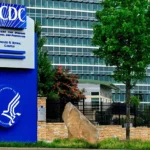Yang Xiaoming, a key figure in China's COVID-19 vaccine development, has been expelled from his roles in the National People's Congress (NPC) and as chairman of Sinopharm’s China National Biotec Group (CNBG) due to allegations of “serious violations of discipline and law.”

This expulsion underlines a significant crackdown on corruption within China's healthcare sector, raising questions about the transparency and integrity of its vaccine development process.
The Charges and the Crackdown
The charges against Yang involve corruption, a frequent issue in China’s expansive anti-corruption campaign led by President Xi Jinping. Yang's removal is part of a larger effort to purge the healthcare system of corruption that often involves kickbacks and fraud, especially within hospitals, drug companies, and insurance funds. This crackdown has detained several hospital chiefs and high-profile industry executives over the past year.
Impact on WHO's Credibility and Pandemic Treaty Proposal
Yang’s case casts a shadow over the World Health Organization’s (WHO) decision-making processes, as the vaccines he helped develop were among the first to receive WHO's emergency use approval. The incident exposes potential vulnerabilities in the WHO's approval mechanisms, which rely heavily on national regulatory frameworks and data integrity from member states.
This controversy emerges amid debates over the WHO’s proposal for a pandemic treaty to enhance global pandemic preparedness and response. Yang's misconduct highlights the risks of insufficient oversight and the need for more rigorous clinical data validation, challenging the WHO’s capacity to effectively lead such a global agreement.
Questions About Vaccine Efficacy and Safety
The vaccines developed under Yang’s leadership, particularly Sinopharm’s BBIBP-CorV, have been distributed globally and are a cornerstone of vaccination efforts in many developing countries. However, his expulsion raises concerns about the transparency and reliability of the vaccine's reported efficacy and safety data.
These developments may fuel vaccine hesitancy and undermine public trust in vaccination campaigns, especially in regions heavily reliant on Chinese vaccines.
Repercussions for Global Health Diplomacy
The scandal surrounding Yang Xiaoming may have broader implications for international health diplomacy, particularly China’s vaccine diplomacy strategy. As countries reassess their dependencies on foreign medical products and technologies, the integrity and reliability of suppliers are becoming paramount.
This case could prompt a reevaluation of bilateral agreements and influence future international health collaborations, potentially affecting the global distribution of vaccines through initiatives like COVAX.
Yang Xiaoming's downfall not only disrupts China's position in the global health arena but also illustrates the complexities and challenges facing global health governance today. The WHO's ability to enforce stringent guidelines and ensure compliance among member states is crucial for its proposed pandemic treaty to be effective.
This situation underscores the necessity for an international regulatory framework that is robust, transparent, and capable of withstanding political and personal misconduct to safeguard global health security.
Historical Missteps in WHO's Decision-Making
The World Health Organization (WHO) has faced criticism for handling critical health crises, highlighting concerns about its decision-making processes. Notable instances include the delayed response during the 2014 Ebola outbreak in West Africa, where WHO's hesitance to declare an international emergency was seen as a significant misjudgment.
Criticisms of Mask Mandates During the Pandemic
Critics of mask mandates during the COVID-19 pandemic argue that the compulsory use of masks could have unintended consequences. Some suggest that masks could lead to increased face touching, which is a route for virus transmission, especially if masks are not used or disposed of properly.
Concerns have also been raised about the psychological and social impacts, particularly the effects on communication and social interaction. Additionally, skeptics point to the possibility of reduced oxygen intake or increased carbon dioxide inhalation for those wearing masks for extended periods, though health professionals generally dispute these effects.

Carl Riedel is an experienced writer and Open Source Intelligence (OSINT) specialist, known for insightful articles that illuminate underreported issues. Passionate about free speech, he expertly transforms public data into compelling narratives, influencing public discourse.













